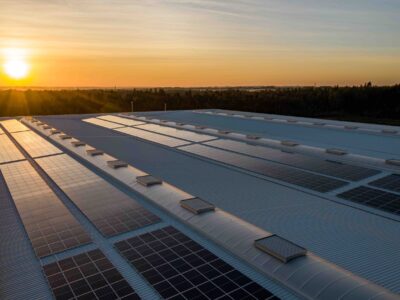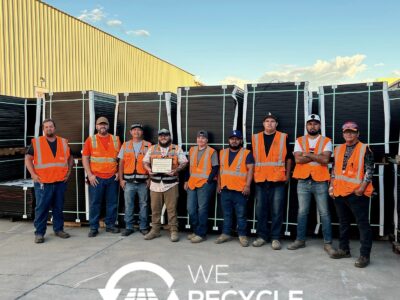Bridgestone is rethinking how tires are made by exploring a desert shrub called guayule. Native to North American deserts, it naturally produces rubber, making it a sustainable, eco-friendly alternative to hevea brailiensis — the para rubber tree — currently used to make most tires.
Traditional tires are a source of air pollution, shedding tiny pollutants with every use. In early 2022, Bridgestone received a Department of Energy research grant to support the company’s decade of research into the viability of the greener option.
“Guayule shows tremendous potential for advancing the biodiversity of natural rubber sourcing and introducing alternatives to existing crops in water-starved areas such as America’s desert southwest,” said William Niaura, Bridgestone’s director of sustainable materials and circular economy. “This grant will accelerate our efforts to create a sustainable model for growing and harvesting guayule at scale, which we are aiming to achieve by the end of the decade.”
Bridgestone will use the Department of Energy grant to map and sequence the genome of several guayule varieties to determine which is best suited for rubber manufacturing.
The company is also wrapping up studies from a $15 million Department of Agriculture National Institute for Food and Agriculture grant. It partnered Bridgestone with the University of Arizona, the Colorado School of Mines, and other universities to pave the way to full domestic reliance on natural rubber from guayule.
Though early research began in the 1980s, recent advancements led to the first guayule tire rolling off the production line in 2015. Today, Bridgestone is off to the races. The Firestone Firehawk racing tire made motorsports history by being the first tire made from the alternative to participate in a car race: the NTT IndyCar Series in the tiremaker’s hometown of Nashville, TN.
The variation between the rubber extracted from the traditional tree and guayule is essentially unnoticeable. In fact, drivers are unlikely to notice a disparity in performance or handling. The vital difference is that the plant grows quickly in harsh environments and is easily sourced in the southwest U.S., saving on transportation emissions for American manufacturers. Though the extraction process is more challenging, the ease of farming it via current row-crop equipment makes the transition easier.
Bridgestone has already invested more than $100 million to develop guayule for tires and has pledged an additional $42 million in upcoming research.
The company believes engineering the plant will help achieve two of its goals. First, these tires will help the firm achieve carbon neutrality. Second, it has pledged to make tires using 100% renewable sources by 2050.
Additionally, the company is working closely with Native American Tribes and local farmers in Arizona, New Mexico, and California to increase guayule yield, which will significantly reduce the cost of producing the tires. The shrub offers a promising route to eliminate much of the carbon emissions tied to tire manufacturing, offering a greener, cleaner, and more renewable way to hit the highway for all Americans.





